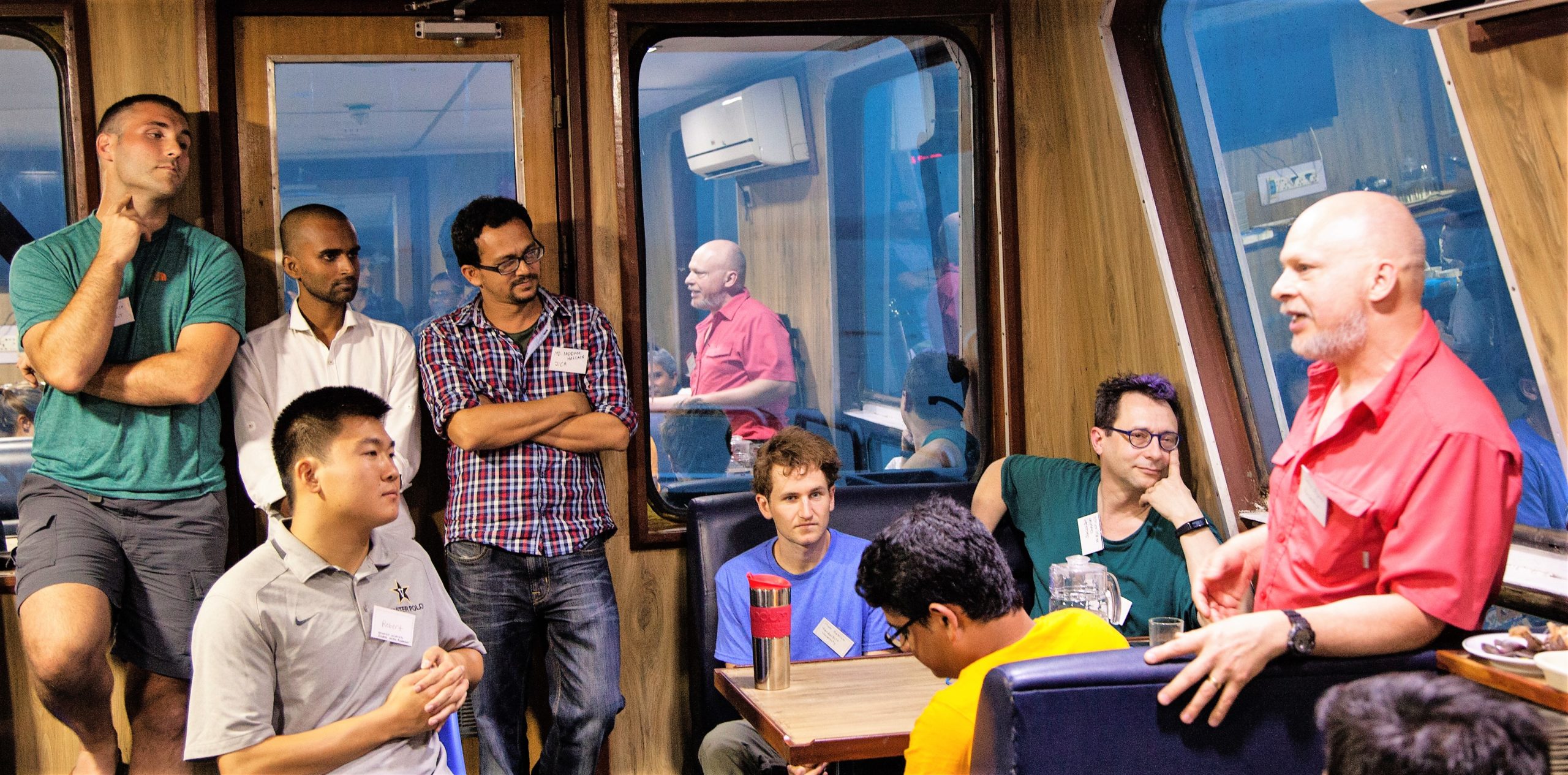
The Sober Professor
It took a good amount of trial and error and accident before John Ayers could become the sober professor. It also took a bout of depression.
Cocktails Anyone?
Like many alcoholics, John C. Ayers found drink to be a great way to treat his anxiety. And he spent most of his high school and college years drinking accordingly. A part of him knew it wasn’t healthy though, and once Ayers “discovered his love of geochemistry,” he toned down the drinking and got on with the business of learning.
“On weekdays, I chose to study rather than go to the bars,” he writes in Science Magazine. “I still enjoyed drinking on weekends, but it was social drinking — nothing I was concerned about. Throughout grad school and my early years as a professor, I still sometimes drank too much. But it didn’t cause problems.”
Eleven years into his career, Ayers lost his father and things began to change. He became depressed. The depression, in turn, led to weight gain and sleep apnea. Chronically deprived of sleep, Ayers’ mind clouded and temper flared. His work and his relationships suffered. He turned to alcohol for relief.
“I started to self-medicate with alcohol,” he writes. “[That] reduced my anxiety in the short term. But eventually I became so depressed that I no longer [even] tried to restrain my drinking. [In fact,] I took up mixology as a hobby and started to drink cocktails every night.”
Seeking Help
Of course becoming a mixologist in order to downplay your drinking might fool some of the people some of the time but it doesn’t change the facts. And it sure won’t fool yourself. The proverbial jig will eventually be up. That eye-covering wool will pull itself back. And the problem will need to be faced.
The Vanderbilt University professor sought psychiatric help. The head doc prescribed anti-depressives. Yet neither talking nor medicines seemed to help. Not enough anyway. His insomnia continued basically unabated. His work and his relationships continued to suffer. So did his mental health.
Ayers tried different meds. Yet they didn’t work either. So he pulled out his diary and started looking for clues.
“Something wasn’t right,” wrote Ayers. “I’d experienced insomnia before, and now I saw the common thread. In both cases, my psychiatrist had started me on new medications and had recommended that I temporarily stop drinking alcohol. Suddenly it hit me: The insomnia was a symptom of alcohol withdrawal. I was a functioning alcoholic. It was the wake-up call I needed.”
Boom! Just like that. Ayers had discovered the root of his problem wasn’t depression after all. It was alcohol. He was a functioning alcoholic.
That revelation happened nearly 10 years ago. Ayers has been sober ever since.
The Sober Professor
Yes, Ayers discovered the root of his problem like a flash of white light. The solution however wasn’t quite so easy. Despite his immediately committing to abstinence.
“The first 6 weeks were especially hard,” writes Ayers. “But I got through them by exercising regularly and spending time with my family. I was fortunate that I was on a sabbatical at that time. That gave me space to focus on my health and recovery. I started to practice mindfulness and meditation and attend Alcoholics Anonymous meetings. I also took time to learn about a new scientific discipline and start a new collaboration. [Those] got my creative juices flowing again and helped me rediscover my thirst for research.”
Nearly a decade into his sobriety, Ayers now “lives with less stress, has healthier relationships, and is happier and more productive.” Sure, he “still suffers from anxiety, but he finds that regular exercise and meditation helps him cope.”
Ayers also “avoids alcohol-centered events.” When such things are around anyway. “Occasionally, I get odd looks from colleagues,” he writes, “but they quickly understand when I tell them I’m a recovered alcoholic. No one I’ve confided in has made me feel bad.”
That understanding is huge to an alcoholic’s recovery. So is support. Ayers is fortunate to find both. After all, people haven’t always been so understanding and supportive.
The sober professor “now worries that others, facing the stresses and sadness of the pandemic, may be starting down a similar path.” That’s why he took to the pages of Science. To provide his very own cautionary tale.
And, having found the solution, Ayers is doing what every good-standing member of AA is compelled to do — that is, to help a fellow alcoholic.
“If you’re one of the many people who are currently struggling in the midst of the pandemic, take it from me:” writes Ayers, in closing. “Alcohol may make you feel better temporarily, but it’s not a healthy way to cope with stress and anxiety. Ask for help instead.”
Healing Properties would like to congratulate Professor Ayers on his sobriety, and applaud his very vocal efforts to help other alcoholics. Coming clean isn’t easy; doing so in such a public forum is even harder. Much harder. And it takes real courage. The kind of courage one finds in sobriety. And Professor Ayers provides a perfect example of just that. If you’re seeking help for alcoholism or addiction, please give us a ring at 561-563-8882 We’re here for you.
Photo Credit: Andre Louis Leroux (Vanderbilt University)